Kidney Stone Shockwave Treatment (Extracorporal Shock Wave Lithotripsy / ESWL)
ESWL (Extracorporal Shock Wave Lithotripsy) Video
Who is suitable for kidney stone shockwave treatment?
What are the advantages of kidney stone shockwave treatment?
What to expect during and after kidney stone shockwave treatment?
Post-Operative Care Instructions
Kidney Stone Shockwave Treatment (Extracorporal Shock Wave Lithotripsy / ESWL)
Kidney stone shockwave treatment is medically referred to as Extracorporeal Shock Wave Lithotripsy (ESWL). It is a technique that has been used successfully to treat renal stones since around the 1980s. The procedure involves directing shockwaves from outside the body through the body’s tissues, towards the kidney stones, where they break the stones up into smaller fragments. These fragments can then be passed through the urine.
ESWL (Extracorporal Shock Wave Lithotripsy) Video
Who is suitable for kidney stone shockwave treatment?
Kidney stone shockwave treatment is most appropriate for patients with kidney stones that are less than 1.5cm in diameter. ESWL is most effective for patients with stones in the kidney or in the ureter close to the kidney. The treatment may not be effective in patients with larger stones. There are numerous factors that may determine a patient’s suitability for kidney stone shockwave treatment, and these can include:
- The size and shape of the stone
- The location in the urinary tract where the stone is present
- The patient’s overall health
- The health of the patient’s kidney(s).
If kidney stone shockwave treatment is not deemed to be an appropriate choice for you, the surgeons at Melbourne Urology Centre are experts in recommending another appropriate treatment, which may include:
- Medical expulsion therapy
- Minimally-invasive laser fragmentation
- Percutaneous nephrolithotomy (PCNL) surgery.
What are the advantages of kidney stone shockwave treatment?
The greatest advantage of kidney stone shockwave treatment is that it is a non-invasive procedure, effectively treating kidney stones without the need for an incision or telescope/cystoscopy. Because of this, the patient does not usually require a hospital stay and can therefore resume most of their normal activities in 1-2 days following their treatment.
What to expect during and after kidney stone shockwave treatment?
Kidney stone shockwave treatment does not involve any incisions being made, however you are likely to still receive some sedation or anaesthetic, which will help you to remain still during the procedure and reduce any discomfort. You will be positioned on an operating table in a position that will allow the surgeon to target the kidney stones with the shockwaves. An ultrasound (or xray) is then used to pinpoint the exact position of the stone within the kidney, and a specialized machine is used to direct the shockwaves precisely to that location. Typically 1000-2000 shockwaves are required to break a small kidney stone.
You may pass some small fragments of stone in the urine for some days following your kidney stone shockwave treatment. These can occasionally cause mild pain as they pass. You may also experience some mild abdominal discomfort, which is often felt as a dull ache and reduces over the following days.
Depending on the stone density and size, repeat treatments of kidney stone shockwave therapy are sometimes required to break fragments up further.
Melbourne Urology Centre offers kidney stone shockwave treatment in Melbourne. Our team is dedicated to providing patients with the highest quality, personalized care. If you would like to discuss kidney stone shockwave treatment, contact our reception to make an appointment.
Post-Operative Care Instructions
What to expect:
- Minor bruising may be present on the skin on your back at the site of the treatment; you may take paracetamol or ibuprofen for discomfort
- Blood in the urine is common and may last for a day or so following the procedure; ensure you drink plenty of fluids
- You may notice the passage of some stone ‘gravel’ fragments in the urine.
Return to activity:
- Driving – no driving for 24 hours and until you are pain free
- Work – you will require some time off work; the duration will depend on your occupation. Generally, you may return to light duties after 24-48 hours
- Lifting – avoid heavy lifting for a week following your procedure
- Activities – walking is fine and encouraged following your procedure, however you should avoid strenuous activity for a week following your procedure.
Pain Management:
You may take ibuprofen or paracetamol if you are experiencing discomfort.
Head to your nearest hospital emergency room if:
- You are unable to urinate (rare, but may occur if there is significant blood in the urine)
- Fevers, chills or shakes (may indicate infection)
- You have severe back or flank pain that cannot be controlled with medication
Follow-Up Information:
Our rooms will contact you to arrange a follow-up appointment with your urologist typically 1-3 months after your procedure. Your urologist will usually request that a follow-up scan be done prior to your appointment.
Your follow-up appointment is on: ____________________ at __________________.
Contact Information:
If you have any questions or concerns that are not addressed here or in the procedure information available on our website melbourneurologycentre.com.au contact our rooms on 1300 702 811 or [email protected]
Post-Operative information for this procedure can be found here: Extracorporal Shock Wave Lithotripsy (ESWL) Post-Operative Care Instructions
Written by Dr. Shekib Shahbaz and Dr. Tony de Sousa
Rassweiler, J. J., Renner, C., Chaussy, C., Thuroff, S., (2001), Treatment of renal stones by extracorporeal shockwave lithotripsy, European Urology, 39(2), [https://doi.org/10.1159/000052435], accessed 27/02/21.
